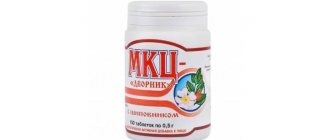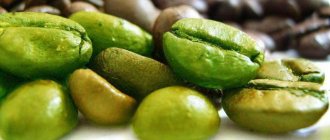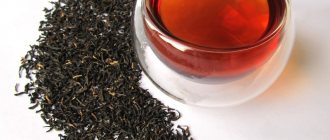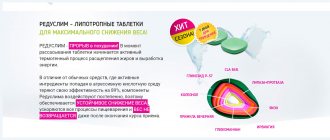L-carnitine (levocarnitine, carnitine) is a bioactive substance similar in structure to B vitamins. Its chemical composition is an amino acid. Endogenous synthesis of levocarnitine occurs in the liver and kidneys with the participation of lysine and the donor of methyl groups - methionine. The synthesis of this substance is impossible without the participation of vitamins C, group B, folic acid and iron.
The task of carnitine is to participate in fat metabolism and saturate the body with energy. As a result of chemical reactions, the compound acyl-CoA, known to many, is formed from fatty acids and coenzyme A. By itself, this molecule cannot penetrate the mitochondria. And then an amazing thing happens. Carnitine replaces coenzyme A in the molecule and turns into acyl-carnitine.
Unrecognized, it freely passes through the double membrane of the cell, which also contains coenzyme-A, and penetrates into the mitochondria. Inside the cell, the acyl-CoA molecule is resynthesized on its own. There, a further process of its oxidation occurs to the final metabolic products - water and carbon dioxide. In this case, a large amount of energy (ATP molecules) is released. What about L-carnitine? He comes back freely.
The body's need for L-carnitine
Sources of amino acids (lysine and methionine) are foods consumed and proteins from your own muscle tissue. But, only 100–300 mg of this substance per day comes with food, while an adult of average build needs to consume 300–600 mg of carnitine during this period. With an increase in energy consumption, various diseases, and pregnancy, the need for it increases 5-10 times and amounts to 2000 mg or more.
The liver produces 25% of the daily requirement of the substance; the rest of L-carnitine is obtained from foods:
- fish (red, rich in amino acids and PUFAs - Omega-3)
- meat of domestic and wild animals, poultry;
- dairy products, including cheeses;
- avocado.
There is a problem for fitness - the low bioavailability of pure levocarnitine when eating (only 5 - 15%). Then how to take L-carnitine? Athletes need to consume up to 4 g of carnitine from food and supplements to increase the amount of the substance by 10%.
It is possible to stimulate more effective use of the drug if you combine it with carbohydrates (increasing the pool by 21%). This combination is suitable for swimmers, marathon runners and athletes accustomed to consuming carbohydrates.
What is L-carnitine
Carnitine was isolated by scientists from animal muscles at the beginning of the 20th century (carnis - in Latin flesh, meat). Today it has been established that it is a fortified amino acid that accelerates metabolic processes. Carnitine biosynthesis occurs inside the body, so it cannot be called a vitamin. But the synthesis of L-carnitine requires many components that we can only get from food:
- essential acids lysine and methionine;
- ascorbic acid;
- vitamins B3 B6 B9 B12;
- iron.
Every day our body produces up to 20 mg of L-carnitine, which is concentrated in muscle tissue - in the muscles, in the heart muscle, and in certain centers of the brain. Around the age of 40, the synthesis of carnitine slows down - the body reacts to its deficiency with aging. L-carnitine deficiency is also experienced by those who do not get the necessary nutrients from food. Therefore, it would not be a big mistake to call this substance vitamin B11 - a supplement of youth and beauty.
What properties are inherent in L-carnitine?
Today the properties of this substance have been sufficiently studied. They are used by ordinary people, athletes, and people who dream of losing weight. Carnitine:
- has anabolic and cytoprotective effects. Accelerates tissue regeneration, promotes the growth of muscle mass and muscle strength, enhances performance;
- increases the body's endurance by converting fat into energy;
- improves memory and thinking ability, reduces symptoms of depression and pain;
- optimizes reproductive function, stimulates spermatogenesis.
- improves vision function - inhibits dystrophic changes in fiber vessels;
- utilizes “waste” and toxic metabolites accumulated in cells during fat oxidation;
- reduces the formation of lactic acid;
- assists in supplying the myocardium with oxygen;
- slows down aging.
During the process of transporting acids, fats are not burned. Only energy supply to muscle cells occurs. Therefore, it is worth remembering that L-carnitine for weight loss is used only with regular, intense training.
+ 14.36 bonus rubles
Be FirstL-Carnitine 700Carnitine718 rub.
+ 25.22 bonus rubles
Optimum NutritionL-Carnitine 500 TabsCarnitineRUB 1,261
+ 25 Bonus rubles
Be FirstL-Carnitine 3300 20 ampoules Carnitine concentrate RUB 1,250
+ 31.8 bonus rubles
MaxlerL-Carnitine 2000Carnitine concentrate1,590 rub.
Properties of L-carnitine
Unlike many dietary supplements and advertised fat burners, L-carnitine belongs to drugs proven by medical practice. The substance is included not only in sports nutrition products, but also in many clinical medications. Moreover, drugs containing levocarnitine are produced in many countries around the world, including such demanding drug safety countries as the USA and Germany.
In particular, the substance has the following properties:
- accelerates tissue regeneration after injuries;
- increases endurance to physical activity;
- improves mental activity;
- activates memory;
- slows down dystrophic changes in the retina;
- eliminates muscle pain after training by reducing the production of lactic acid in the muscles.
During the transport of fats from the depot to muscle cells, they do not interact with carnitine; reactions begin at the cellular level when interacting with coenzyme-A.
About the benefits of L-carnitine
L-carnitine participates in universal biochemical processes in the body. This feature allows us to talk about it as a useful supplement and use it in the widest range of medicine, including cosmetology and the sports field. It is worth talking about the benefits of L-carnitine and what it is needed for.
Carnitine for the heart:
- being an antioxidant, it protects heart cells from ischemia, hypoxia and the effects of stress;
- lowers cholesterol levels in the bloodstream.
- increases the rate of lipid breakdown;
- prevent the formation of blood clots;
- improves cardiomyocyte metabolism and preserves ATP reserves;
Carnitine for the brain:
- has antidepressant properties, enhances the effect of serotonin;
- improves memory, attention, increases learning ability.
- increases resistance to emotional stress and overload;
- improves sleep;
Carnitine preparations in sports medicine:
- maintain an optimal physiological state and provide the muscles with the necessary energy during heavy physical exertion;
- increase efficiency and endurance during training.
- increase muscle mass through the use of fat depots;
For the body as a whole, L-carnitine will give you a boost of energy throughout the day, create a good mood and increase confidence in your abilities.
Contraindications
L-carnitine is one of the most harmless supplements in sports nutrition. An overdose is unpleasant, first of all, for the wallet - after all, expensive excesses will be excreted in the urine without any benefit to the body. But there are people for whom Levocarnitine is contraindicated:
- patients with renal failure on hemodialysis;
- epileptics - the drug can provoke seizures in them;
- people with an allergic reaction to L-carnitine;
- women while bearing and feeding a child.
How to take L-carnitine
For each person, the dilemma of how much and how to take L-carnitine must be solved strictly individually, based on one’s own energy consumption: the more energy spent, the larger the dose of the substance consumed will be needed. It is worth adhering to certain rules for taking levocornithyl:
- For athletes, the daily dosage is 2000 mg.
- Any liquid form of the drug requires its use within 40 minutes. before playing sports.
- The tablet (capsule) is taken at breakfast.
- The liquid form of the substance is sold in bottles, like syrup (must be diluted with water) or in ampoules. Usage regimen: 3 times a day, one of them before training. The dose for athletes is 15 ml, for others – 5 ml. You should not abuse the supplement for more than one and a half months.
- Children drink the drug for 30 days at a dose of 25 drops (2.5 mg of carnitine) per day.
- In tablet form, levocarnitine is swallowed (not dissolved) with plain water. The dose ranges from 0.2 g to 0.5 g, taken three times a day. One tablet is taken before sports activities.
- The capsule is swallowed and washed down with a glass of plain water. Take – 3 times a day, 1 – 2 capsules (for athletes – 1500 mg). The course of adoption ranges from 2 to 6 months. Drink for a month, then take a 7-day break.
- Powder is a form familiar to athletes. They often make cocktails from it, so the preparation procedure is familiar to them. Dilute the powder in the amount of liquid specified in the instructions. They drink the drink not in separate sips, like tea, but all at once.
It is best to discuss individual dosage issues with a trainer or doctor. It is worth recalling that L-carnitine for weight loss for people who are only on a diet is a useless remedy. It is not classified as a fat burner. Only systematic fitness and sports activities will allow you to use this drug as a means of losing weight.
On the subject of discussion: “How to use L-carnitol and is it dangerous?” It is worth noting that levocarnitine is not a dope; it is considered a vitamin-like metabolite and is used in sports nutrition without restrictions.
What are the benefits of L-carnitine for athletes?
Among people leading an active lifestyle, L-carnitine is one of the TOP 3 most popular supplements. It is popular as a fat burner and is included in energy and recovery complexes. So far, researchers have not received experimental evidence of the effectiveness of Levocarnitine in sports, but athletes are convinced from their own experience that the supplement works and is beneficial.
Fat burner
Strictly speaking, Levocarnitine is not a classic fat burner; it does not trigger lipolysis, the process of breaking down adipose tissue. In order for fat reserves to begin to melt, a condition is necessary - an energy deficit during intense exercise. The brain evaluates this state as stress and gives a command to release adrenaline and “unpack” fat reserves.
A calorie deficit occurs after the “coals” - glycogen, a carbohydrate source of energy - are burned during training. This usually occurs after 25-30 minutes of intensive warm-up, sometimes this will require an hour of active exercise. If an athlete follows a low-carb diet, the fat burning process begins earlier. The signal that lipolysis has begun is an increase in heart rate half as high as normal (if the normal heart rate is 60 beats/min, then lipolysis will begin at 90-95 beats/min). At the same time, the body temperature rises and a surge of strength is felt. This suggests that fatty acids, thanks to carnitine, entered “cellular power plants”, where they were oxidized and released energy. The longer an athlete trains in this state, the more fat he is able to burn (provided there is enough L-carnitine in the muscles). Fat oxidation requires a lot of oxygen, so losing weight is especially effective during cardio exercise. More movement means more oxygen enters the body and less fat remains in it.
Keep in mind: if there is a lack of movement, without physical activity, L-carnitine is absolutely ineffective as a fat burner.
Energetik
Many athletes use Levocarnitine as part of pre-workout complexes in order to increase the energy potential of exercise. As soon as the process of fatty acid utilization begins, athletes get a second wind. The onset of lipolysis sharply increases the body's need for L-carnitine, so it is important to take the supplement in a timely manner before training. It has been proven that consuming L-carnitine can increase the duration of exercise by 25% without any harm to health. It is important to take the supplement immediately before exercise: in liquid form – half an hour before the start; in capsules – in 1-1.5 hours. Taking L-carnitine at other times of the day will not affect the effectiveness of the training.
Anabolic
In bodybuilding, anaerobic exercise predominates with a low supply of oxygen to the blood. Hence, fat oxidation in cells is not as intense as during cardio exercise. This does not prevent L-carnitine from being popular among jocks.
- The supplement stimulates the production of energy from fat, protecting muscles from destruction.
- Reducing subcutaneous fat helps to form sculpted muscles.
- A slight anabolic effect of levocarnitine was noticed: the supplement accelerates the growth of muscle mass by 5% compared to those athletes who did not consume it.
- L-carnitine removes fat burning products from cells, binds and removes lactic acid from muscles, which greatly facilitates recovery from physical stress.
Experienced athletes take L-carnitine both during normal training and during cutting.










